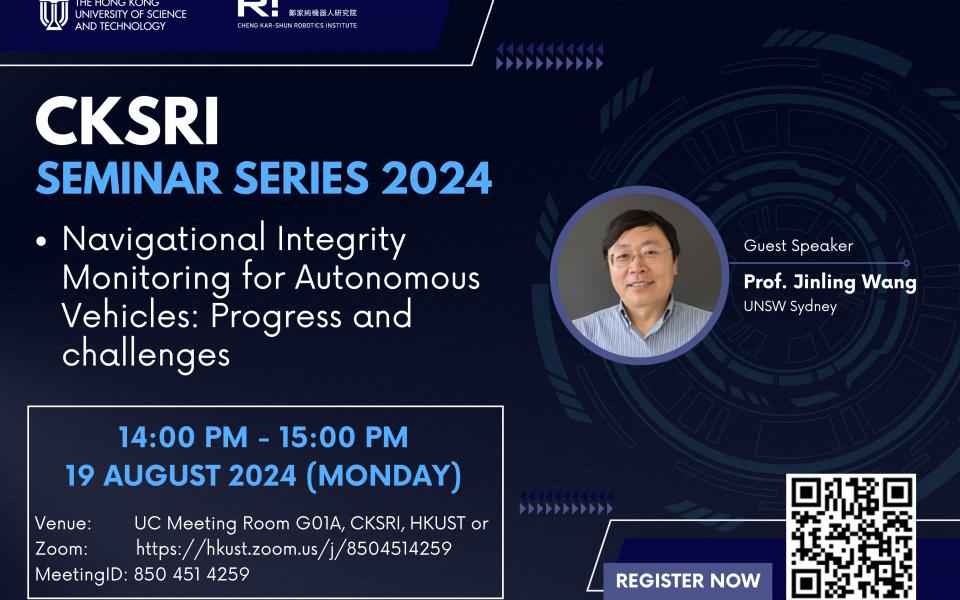CKSRI Seminar Series 2024 “Navigational Integrity Monitoring for Autonomous Vehicles: Progress and challenges"
Supporting the below United Nations Sustainable Development Goals:支持以下聯合國可持續發展目標:支持以下联合国可持续发展目标:
ABSTRACT:
This seminar has invited Prof. Jinling Wang, Associate professor and Director of the Geospatial Mapping and Navigation Group, in the School of Civil and Environmental Engineering, at University of New South Wales (UNSW), Sydney, Australia, to discuss the navigational integrity monitoring for autonomous vehicles.
Positioning and navigation are widely used in our daily life. Nowadays, Global Navigation Satellite System (GNSS) chips are built into our cars and smartphones navigating us efficiently. In looking to the future, driverless cars will certainly revolutionise our mobility and transportation systems around the world. However, GNSS only is insufficient for driverless cars or autonomous vehicles (AVs) to navigate themselves safely, and indeed AVs require full navigation information, including vehicle position, orientation, velocity, and road map, or even some precise high-definition (HD) maps in modular autonomous driving systems.
Therefore, multiple mapping and navigation sensors, such as, precise GNSS positioning, Inertial Measurement Unit (IMU), cameras, radar as well as Light detection and ranging (Lidar) are integrated onboard an AV to provide accurate and reliable online mapping and navigation solutions for vehicle localization, path planning, control, and safe operations. As autonomous driving is highly safety critical, automobile industry and professional bodies are converging to unprecedented navigational integrity requirements for future AVs. Monitoring the navigational integrity for AVs is a complex task.
This research seminar will discuss the latest progress and some challenges related to mapping and navigational integrity monitoring for AVs with modular or end-to-end autonomous driving systems.
SPEAKER: Prof. Jinling Wang is an associate professor (US: professor) and Director of the Geospatial Mapping and Navigation Group, in the School of Civil and Environmental Engineering, at University of New South Wales (UNSW), Sydney, Australia. The research team led by Prof Wang seeks fundamental understanding of the statistical characteristics within the mapping and navigation sensors for rigorous modelling and quality control procedures. One of his contributions, W-ratio for quality control in precise satellite positioning, has been used by the US government in its online GNSS data process system since 2007. His discovery and proof on the range of redundancy numbers for correlated measurements has been adopted by textbooks/monographs. He has been 4 times named among the World’s Top 2% scientists in 2023/2022/2021/2020 on Stanford University’s research career contribution rankings and 4 times named as Australian Research Fielder Leader in Radar, Positioning and Navigation by the Australian Research magazine in 2023/2022/2020/2018.
